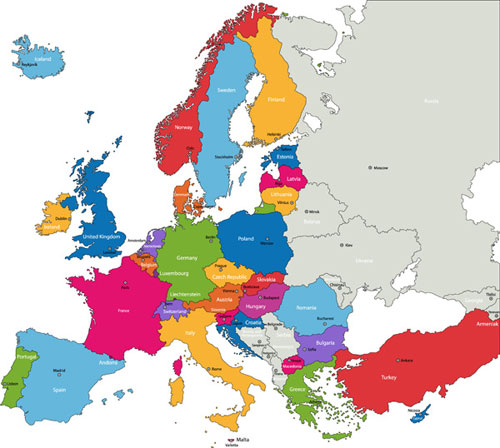Emmanuel Macron has just been sworn in as the new French president, but all eyes are already on the country’s parliamentary elections early next month. There won’t be much of an upside for the European cause to be had then. Rather, we will see more of the same, as in little reform in the wake of lack of political majorities. So much for the sigh of relief out of France.
The eurocrats will argue that neither the Dutch nor the French elections have presented us with the nightmare scenario that everybody has been fearing from the beginning of the year. While that may be true, there is no room for complacency. The Tories think they will bring their Brexit baby home in a few weeks, at least for now, when the UK goes to the polls.
Then, it is Germany’s turn in September. Angela Merkel seems to have regained the upper hand again on challenger Martin Schulz who’s been losing state elections and the early glamour after he was named candidate for the SPD. But the fat lady hasn’t sung yet, and either result may not be in the eye of the eurocrat beholder. Merkel may be seen too dominant for Macron, and Schulz may finally give the key to the German vaults away.
Not enough with that, as the year is still long. As it transpired on Friday, beloved Austria is on course to detonate their coalition government, which only means one thing – new elections, probably also after the summer. Be reminded that Austria had just escaped one of its populist traps at the presidential elections last year. Parliament is different, and the FPO party on the right has been leading the polls for years.
As it presents itself, the grand coalition between Social Democrats and Conservatives is finally a thing of the past. The only constellation for a stable government going forward means either of them biting the bullet and partnering up with the Rightists. In other words, it is almost a given that Austria will be ruled by the populists from autumn, the only question remains whether they will be the leading partner or not.
Italy is next, and I find it amazing how quiet the political class has been with regards to new elections. The latest announcement says that Rome will call people to the polls by spring 2018, a whole year after the government collapsed and was replaced by a caretaker assembly. What is that all about? We know of all the delaying tactics to ride out any possible populist burps, but will it help this time?
Clearly, Italy wants to see the lay of the EU land after all other elections have been fought. That is understandable. The calculation must be… If the populists can largely by avoided in parliaments all around, Beppe Grillo will have lost enough of his shine to be taken on by the establishment. If on the other hand there was further deterioration, the question would be what if any EU concessions were in the offing to take the wind out of Beppe’s sails.
As has been demonstrated in this space numerous times, Italy cannot be lost to eurozone and EU. Too much is at stake. It is less about Italy being a founding member of the EU and should have its place, the built up imbalances within the eurosystem would financially very likely destroy everybody including Germany. So to go about any call of the Italian people cautiously is very much by design.
What is it though that could save the EU, at least for another 5-10 years? Well, the only concept that has any merits is a much deliberated 2-speed monetary union, with the periphery being given much more room and the Northern core being allowed to integrate faster. It will obviously not solve anything, but it will make the structure flexible enough to not burst like concrete walls.
It still requires the Germans to foot the bill, one that will run up even further without anyone being forced to settle. Either side will be happy for a while. Periphery countries have something to pacify their populace with, and Germany’s commitment of never blowing up the European construct will also remain honoured. By the time the majority of Germans understand their liabilities, it will be too late anyway.
And what about the UK? Article 50 was called. The coming elections will even further cement the Brexit league’s power. But 2 years is a long time, and it appears there is hardly anyone who is willing to accept the only option of a hard detachment. Any decision in how eurozone and EU will progress going forward will mean an opportunity to bring the UK back to some sort of brainstorming table.
A Northern core that semi-detaches itself from the South may need the UK to play a role in achieving their objectives. When debating this with my good professor friend over the weekend, he reminded me of the early concept of EFTA, of which the UK was a founding member in 1960. For the sake of being able to kick the can down the road the intelligentsia must dig deep in the tool box to come up with versions of a trade union that might work for all.
